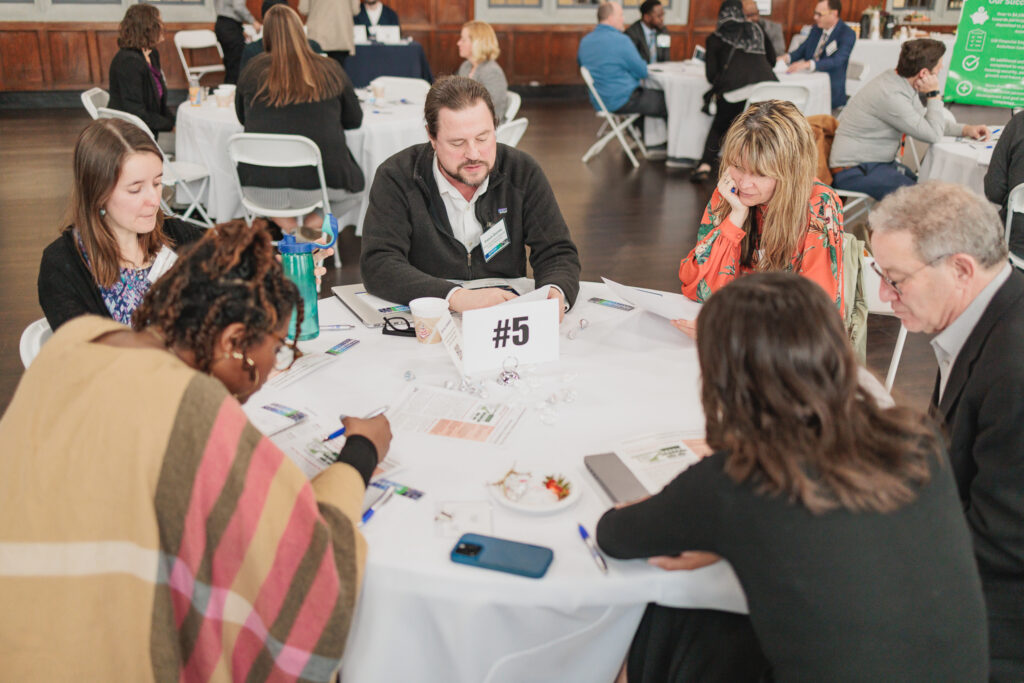Detroit Greenways Coalition, Doing Development Differently in Metro Detroit (D4), GreenPath Financial Wellness, Southwest Economic Solutions Corporation, and Communities First Inc. were recently awarded grants of up to $200,000 each from United Way for Southeastern Michigan – a total investment of more than $1 million – to pilot their ideas as part of the Detroit Financial Well-Being Innovation Challenge.
-
September 20, 2023
COVID-19: U-M report explores link between state’s geographic regions and impact of the pandemic
Detroit had the highest proportion of adults with severe disease based on responses about symptom severity and hospitalization, while the southwest region of the state had the highest proportion of adults with long COVID—persistent symptoms 90+ days after COVID-19 onset.
-
September 19, 2023
An innovative approach to teacher education delivers on its promise
The School at Marygrove is in the Detroit Public Schools Community District, located in northwest Detroit, and the site of the nation’s first teaching school.
-
September 11, 2023
Partner Profile: Detroit Black Community Food Security Network
Detroit Black Community Food Security Network, community-based nonprofit led by Malik Yakini, works to give Detroiters food security, food justice and food sovereignty – and, in doing so, is leading the conversation about the need for racial justice and equity in the food system.
-
August 31, 2023
Alum Frida Sandoval joins DDS class of 2027
Sandoval was part of the U-M’s Health Sciences Scholars Program while earning her undergraduate degree. The program is a learning community that helps students explore various health science careers. A first-generation college student, Sandoval studied evolutionary anthropology and conducted lab research in that field while also shadowing various professional units on campus, including the dental school, medical school and social work, among others.
-
August 31, 2023
Detroit’s economic recovery continues, yet lags other cities in share of living-wage earners
U-M’s economic forecasters analyzed Detroit’s living wage in comparison with “peer” cities. They found only 36% of Detroit residents earn a living wage, compared with 45% in Milwaukee, 48% in Cleveland and 60% in Chicago. Minneapolis has the highest share among cities, though still less than two-thirds of its primary earners make a living wage.
-
August 30, 2023
ArcPrep: Detroit high school students survey the expansiveness of architecture
ArcPrep runs five days a week at the Michigan Research Studio in downtown Detroit, a block away from the U-M Detroit Center. The program takes DPSCD students through five modules a semester. Each module—tool box; food, culture and access; institutions and civil liberties; technology and the city; final project—is meant to show students opportunities of the practice.
-
August 25, 2023
Back-to-school topics: U-M experts available
Back to school brings several challenges, from student learning, expectations of academic success and mental health concerns among children to questioning technology replacing educators and AI and the ongoing shortage of teachers, school staff and supplies. University of Michigan experts can address these and other issues as students return to school.
-
August 25, 2023
UM-Dearborn lecturer Quan Neloms’ school of hip hop
Quan Neloms, a veteran Detroit educator who’s been a lecturer at UM-Dearborn since 2021, likes to joke that his early studio experience made him the first member of Lyricist Society, the after-school group he started in 2009.


